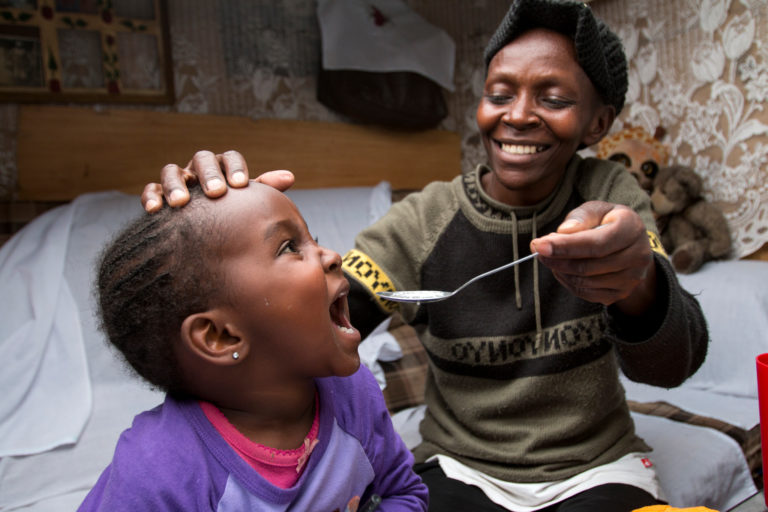NIH Cuts to South Africa Will Cause Global Loss of TB and HIV Research Capacity
 A child with HIV takes a paediatric dose of antiretroviral medication. Many paediatric HIV trials were conducted in South Africa over the past 20 years.
A child with HIV takes a paediatric dose of antiretroviral medication. Many paediatric HIV trials were conducted in South Africa over the past 20 years.
Essential research on tuberculosis and HIV cancelled. Clinical trial participants in limbo. Young researchers’ careers halted – and billions of dollars invested and expertise developed over 30 years potentially down the drain. These are some of the impacts on South Africa of the decision by the National Institutes of Health (NIH) barely a week ago to prohibit United States scientists from working with foreign researchers via “subawards”, leading to the immediate and mass cancellation of such grants with South African institutions.
At least 39 TB and HIV clinical research sites in South Africa are under threat due to NIH funding cuts, jeopardising at least 27 HIV trials and 20 TB trials, according to an analysis by the Treatment Action Group (TAG) and Médecins Sans Frontières (MSF) drawn mostly from the NIH’s Division of AIDS (DAIDS) presented at a media briefing on Thursday. TB trials at risk include testing potential vaccines and new drugs; shorter, safer regimens, and the best treatment for TB meningitis.
The HIV trials at risk include cure-related treatments involving broadly neutralising antibodies (bNAbs); vaccines designed to prime the body to make bNAbs; the impact of hormone treatment on women with HIV and treatment options for pre-exposure prophylaxis to prevent HIV. Many of these trials are global, with South Africans making up 30-50% of global trial participants and 50-90% of trials on interventions for children and pregnant women, said Lindsay McKenna, TAG’s TB project co-director.
She estimates that the average investment in each trial participant is $12,000 – potentially all wasted if the trials are discontinued, and some have been going for several years already. For some 30 years, South African clinical studies have provided global guidance on issues including prevention of mother-to-child HIV infection, when to start children on antiretroviral treatment, how to simultaneously treat TB and HIV, as well as the safety of HIV and TB treatments. Meanwhile, operational research, such task-shifting from HIV doctors to nurses, has led to more efficiency and cost-cutting.
https://healthpolicy-watch.news/nih-cuts-to-south-africa-will-cause-global-loss-of-tb-and-hiv-research-capacity/
So many ways to kill children, and this administration finds them all.
